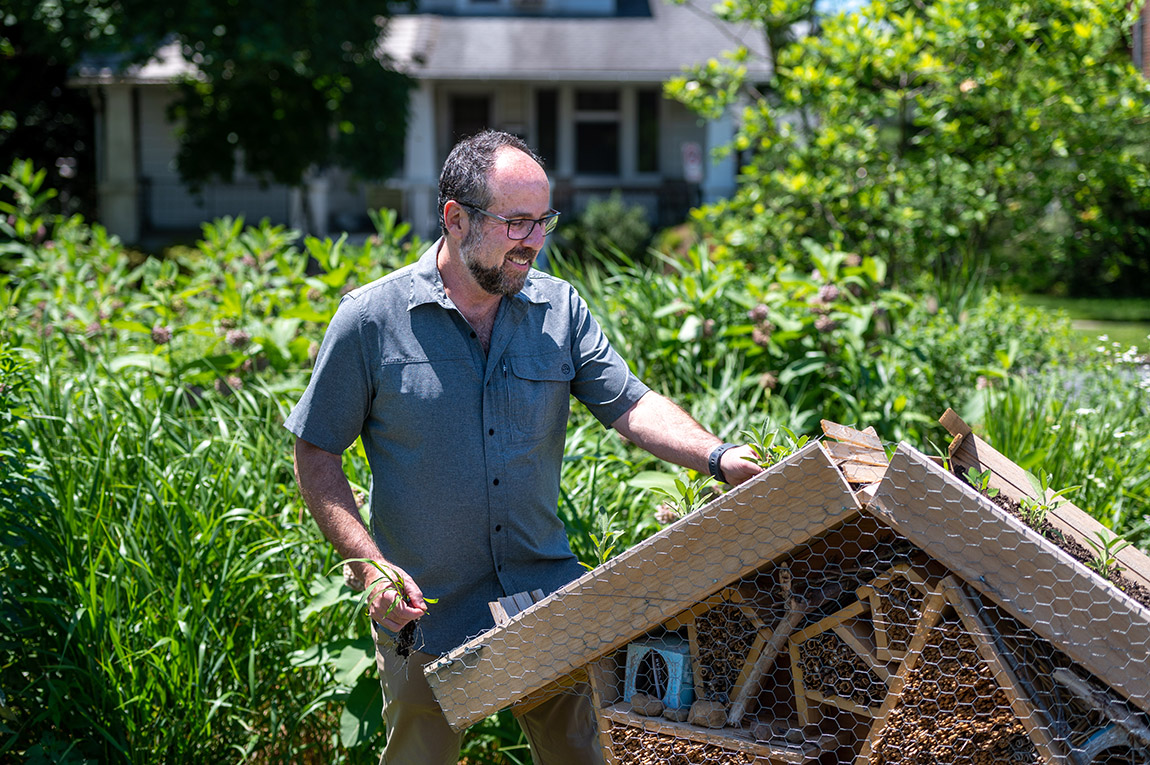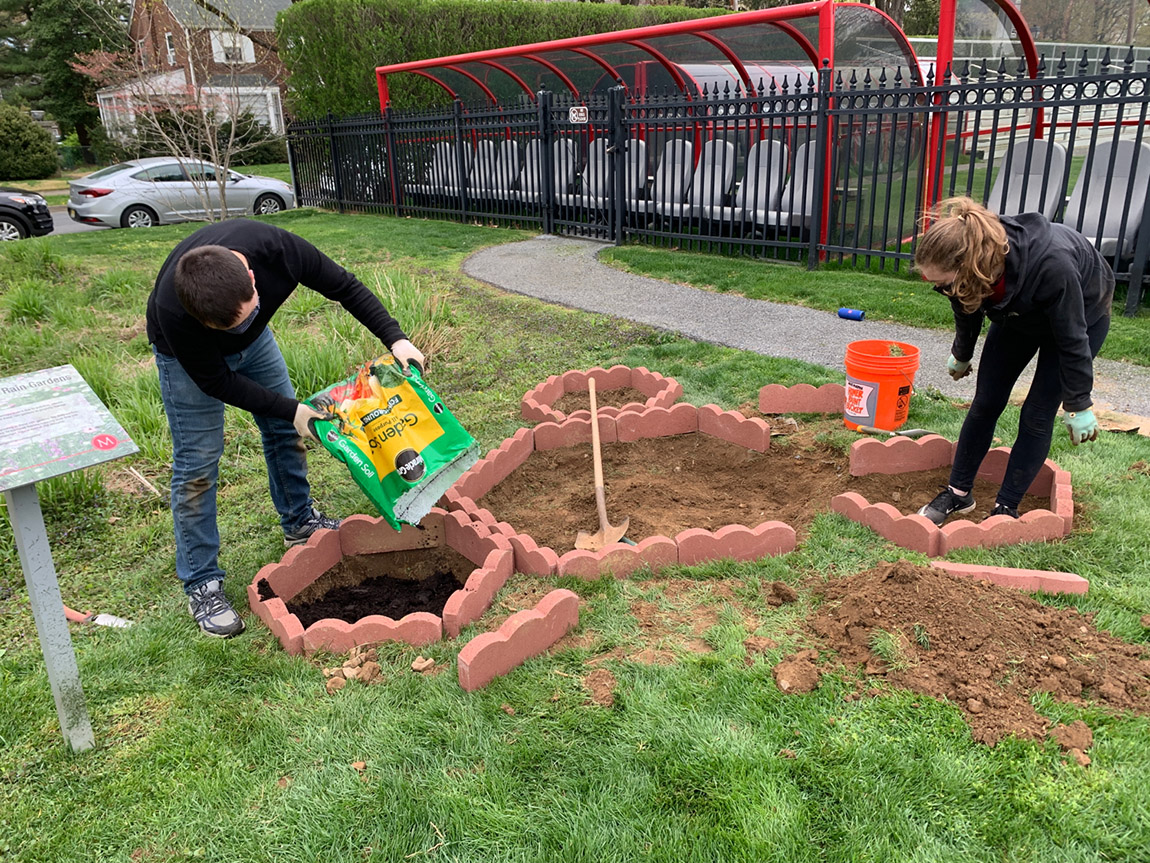Perennials and Pollinators
A student-built pollinator garden is one of Muhlenberg College’s newest sustainability initiatives.By: Grace Oddo '22 Wednesday, June 30, 2021 02:03 PM
 Professor of Biology and Director of Sustainability Studies Rich Niesenbaum manages plants at the College's new pollinator habitat.
Professor of Biology and Director of Sustainability Studies Rich Niesenbaum manages plants at the College's new pollinator habitat.Summer has arrived in the Lehigh Valley, bringing with it sunshine, blooming flowers and buzzing insects. Rich Niesenbaum, professor of biology and director of the College’s sustainability studies program, revels in the warm weather as he wanders the grounds of the College’s new pollinator garden. “Wow,” he says. “Look at all these pollinators!”
Buzzing about the garden’s many plants and habitat structures (wooden structures designed to mimic a beehive) are dozens of honey bees, bumblebees and flies. Even a menacing wasp darts by, but Niesenbaum is unphased. Each section of the garden, located in front of the Muhlenberg soccer field, contains a different perennial plant native to the Lehigh Valley area. Columbine flowers, alyssum and fragrant parsley bloom in the raised garden beds. On top of the bee habitat is garden sage. The Lehigh Valley’s many pollinators—hummingbirds, bees and butterflies, to name a few—rely on these plants for precious nutrients.
These gardens are small and easy to maintain, but they play a vital role in the well-being of the surrounding environment. Pollinators are in trouble due to habitat loss, pesticide use and the increasing threat of climate change. With nowhere to build their homes and no plants to pollinate, honeybee colonies are disappearing fast. According to the nonprofit organization Pollinator Partnership, the United States has lost over 50 percent of its managed honeybee colonies over the past 10 years.
Pollinator gardens are just one of the many ways to provide both shelter and food to insects teetering on the brink of being endangered. “Due to the problem of habitat loss, the idea is to create a functional habitat for solitary bees. The food is right outside,” says Niesenbaum, motioning to the wide array of plants beneath him.
The project was completed by four students as part of the RJ Fellows Senior Symposium, which showcases the work of the honors scholars over the course of their senior year. The program’s theme this year was “Plants and People,” which encouraged students to examine the complicated relationship between mankind and plants.
“In the fall, we took a class about the ways in which plants have influenced our lives,” says Ashling Wahner ’21, one of the members of the group project. “And then in the spring, everybody sectioned off into little groups to start their projects.”
Wahner, along with seniors Jessica Bice, Jessica Orofino and Brian Acquaviva, decided that a pollinator garden would not only be a viable project idea, but an installation that aligns with Muhlenberg College’s position on sustainability. For years, the College has worked in collaboration with students, faculty and the Allentown community to both reduce the College’s carbon footprint and implement new sustainability practices on campus.
“We’ve done incredible work,” says Niesenbaum. “Whether it’s the solar panels on Seegers Union, the new charger for electric vehicles or the bike-share program, I can tell you there’s great progress being made in the area of sustainability.”
The four students soon got to work and tackled the project’s many moving parts. First, the four researched Lehigh Valley pollinators, along with which perennials they like most. The four also collaborated with the Office of Plant Operations to plan the construction of the garden and its surrounding habitat structures. Once the perennials were selected and the blueprints were completed, the group began buying materials, visiting plant nurseries and putting soil down. The four students got to showcase their progress at the RJ Fellows Senior Symposium, held via Zoom on April 21, and the project was completed in May.

Muhlenberg students pour soil to begin the installation of the new pollinator garden and habitat. Photo courtesy of Ashling Wahner ’21.
When reflecting on the project, what stood out most to Wahner was the hands-on learning component. “It was refreshing,” says Wahner. “We liked doing the research, but the fact that we got to use our hands and make a project that people on campus could go see was really cool.” Even though Wahner has recently graduated, she hopes that the pollinator garden will serve as inspiration for future generations of Muhlenberg students. “A little pollinator garden won’t save the world, but it will raise awareness of the issue of why we need pollinators.”
